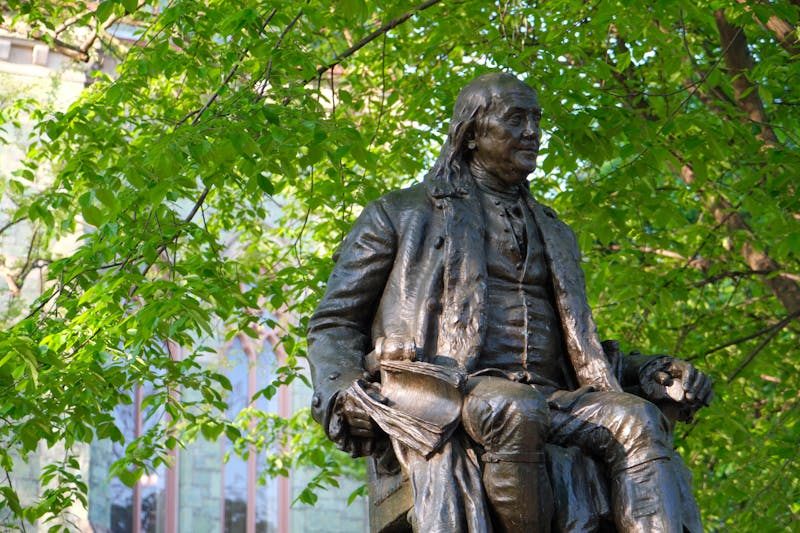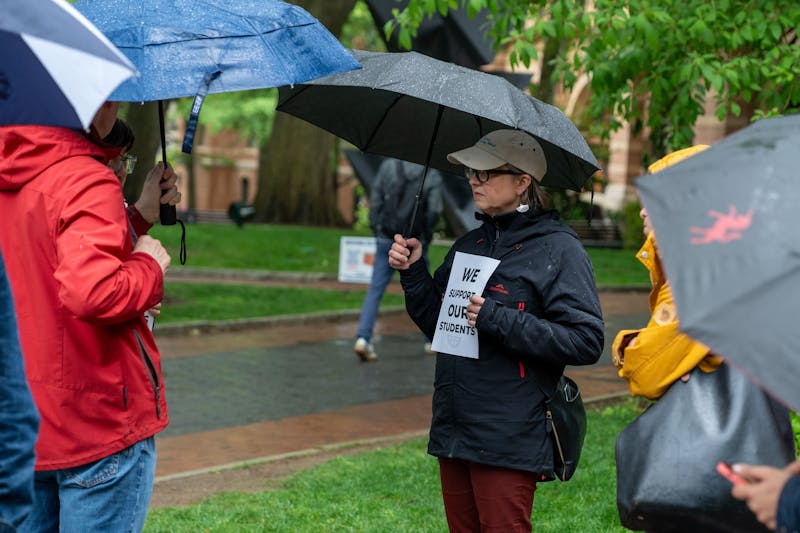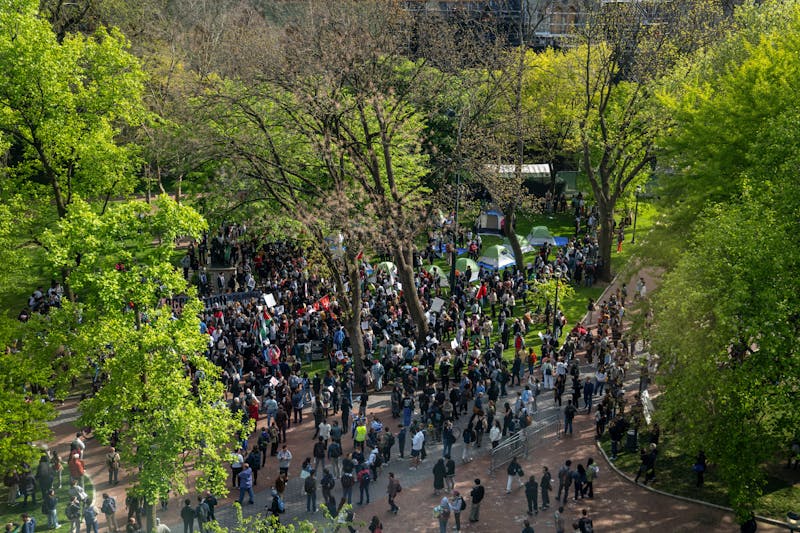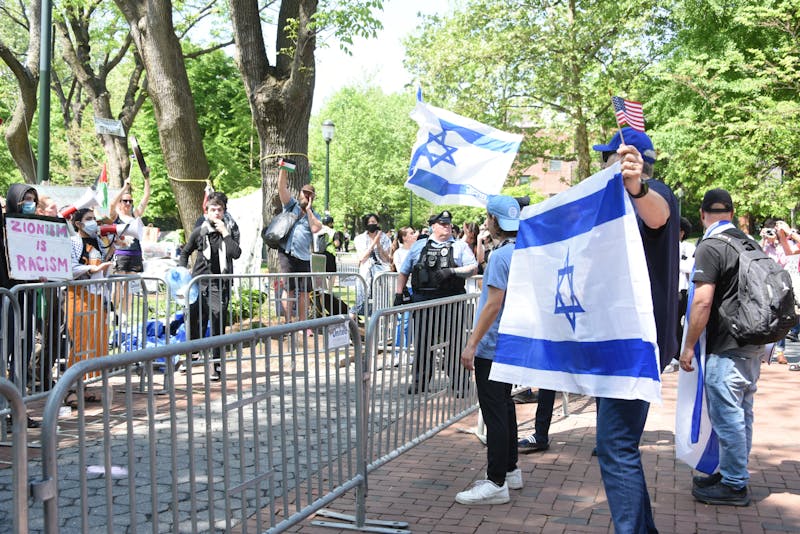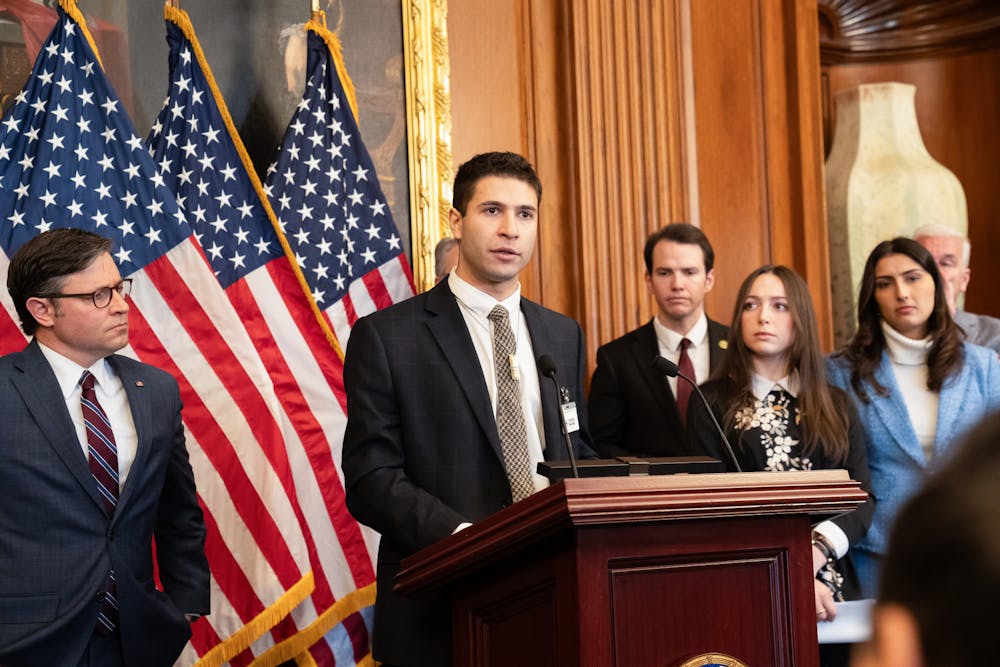
University leadership correctly recognized that the recent encampment protest placed many members of the Penn community “under threat.” Reading now how the story is trying to be twisted through mental gymnastics is dangerous, not only to the community members who have been under threat but also to the students who are being led to believe that breaking the law is acceptable. Reading statements from the Penn chapter of the American Association of University Professors throughout the year — as well as their press conference that paid so much attention to the police who cleared the encampment, and no attention to how we got there — is a remarkable interpretation of the facts of the case, and especially breathtaking from scholars who claim to have expertise in critical thinking. Professors, to me, are individuals whom students should look up to as those who search for the truth. But, reading statement after statement throughout the year, disappointingly, it seems that the truth for AAUP-Penn is full of misstatements and highly biased interpretations.
AAUP-Penn released a statement on May 10, describing the university’s actions in shutting down the encampment as a “Violation of the University’s Guidelines on Open Expression and a cowardly, shameful attempt to silence and punish speech that administrators simply do not want to hear.” On the grounds of open expression, the university is well within its guidelines to remove the encampment, and the argument that it is not is simply unfounded.
The concerning actions of the protesters have nothing to do with free speech. It was the conduct of the encampment that was the central issue. “Homemade weapons” were found at the encampment. A student was surrounded by four masked individuals flashing strobe lights in his eyes and making threats. Documents were found circulating within the encampment on “instructions for escalating–including through building occupations and violence.” The Benjamin Franklin statue on College Green was vandalized numerous times, and one of those times, the incident is being investigated as a “hate crime.” The Penn Police crime logs even include “terroristic threats” at the encampment site. The non-Penn-affiliated members of the encampment were committing illegal trespass. None of these actions have anything to do with free speech.
In addition, it is important that the right to free speech itself is not without limits, and few constitutional legal experts have claimed otherwise. I would contend that the waving of the Popular Front for the Liberation of Palestine flag, a United States Department of State-designated terrorist organization, while simultaneously chanting “Al Qassam, make us proud,” (referring to another recognized terrorist group that has committed countless atrocities) are actions that have no place on college campuses. These are examples of hate speech that incites violence. It is troubling that professors are encouraging this to continue and trying to misrepresent that reality.
Political science professor Anne Norton tweeted “Our students remained peaceful at every point. Even the administration does not dispute that.” Yet, the administration could not have been clearer when they said, “Every day the encampment exists, the campus is less safe. Some have aimed to characterize this as a peaceful protest. It is not.”
Philosophy professor Sukaina Hirji stated during the AAUP-Penn press conference that to her, “Seeing hundreds of cops in riot gear arrest students and faculty sends to me, and to my students and to all of us, a very clear message about what conversations are and are not allowed on Penn's campus going forward.” But when you look at the police records, only nine out of 33 of those arrested were students. So, the argument that students were driving the protest is simply false. To me, every time I walked past the encampment, it was fairly clear that a super minority of the encampment seemed even the age of a college student. And again, claiming this is about “conversations” avoids the issues of conduct entirely.
Another professor, Sarah Jackson, stated that the University’s messaging was “veering dangerously towards propaganda.” She described the encampment as a space for, “education, debate, community, and politics.” This simply is not true. The encampment consistently did not allow anyone whom they deemed as “Zionist” to enter the encampment. A CNN reporter even showed how few of the protesters engaged with him. From my understanding, debate is difficult when you do not even want people with opposing views to be near you. Chabad Rabbi Levi Haskelevich was even physically blocked from entering the encampment, but somehow there is no condemnation of this behavior by the AAUP-Penn’s press conference. Her defense of the protesters was that the students were “genuinely trying to learn.” What is mind-boggling to me is that the entire University is set up for students to learn. There is no need, especially at a university, to set up an encampment in the heart of campus when there is ample infrastructure to educate students.
Elliot and Roslyn Jaffe Endowed Professor in Film Studies Karen Redrobe made a similar point. She stated that Penn has an obligation to “protect academic freedom and the free exchange of ideas.” She continued, according to The Daily Pennsylvanian, to compare what Penn did to fascist governments in the 1930s to eliminate free speech. To compare Penn breaking up an unlawful encampment, after countless warnings, to Nazi Germany’s actions is appalling and disingenuous. In Nazi Germany, the fascist government passed the “Law for the Restoration of the Professional Civil Service” in 1933, firing and barring the vast majority of Jewish professors. They then proceeded to pass the “Law Against Overcrowding in Schools and Universities” to remove Jewish students to “Aryanize” the university. This bears little resemblance to the removal of an encampment on the grounds of a violation of Penn’s policy, state law, and federal law.
Then there was Arabic literature professor Huda Fakhreddine who described Penn’s response as “shameful behavior” and what she described as an ongoing “attack” on pro-Palestinian voices. Yet, Fakhreddeine herself posted on X, the platform formerly known as Twitter, describing faculty members who went to Israel as “insolent, depraved, and morally bankrupt.” It seems as though it is not the University that is attacking pro-Palestinian voices, but her who is attacking pro-Israel voices. Once more, she described the administration's actions as shameful behavior but failed to mention the illegal behavior of the encampment.
It is disappointing how faculty are encouraging the unlawful and unjust behavior of the protesters. It is their encouragement that led to protests surrounding the President’s House, with some even entering the house’s gates. That is what shameful behavior is: getting a mob of people to target someone’s house. But these professors would never report on that because it is that very behavior that is encouraged by the statement they put out. What is most troubling is that it is the students who will ultimately have criminal records as a result of this encouragement. Moreover, if their ultimate goal is to help the Palestinian cause, they should look to productive means of peace and security for both Israelis and Palestinians. This unlawful behavior distracts from what is important. Instead of defending and encouraging the behavior, they should distance themselves from it. I believe in debate and free speech; what I find problematic is the mischaracterization of reality which further puts students in harm's way.
EYAL YAKOBY is a College senior studying political science and modern Middle East studies. His email is eyakoby@sas.upenn.edu.
The Daily Pennsylvanian is an independent, student-run newspaper. Please consider making a donation to support the coverage that shapes the University. Your generosity ensures a future of strong journalism at Penn.
Donate







